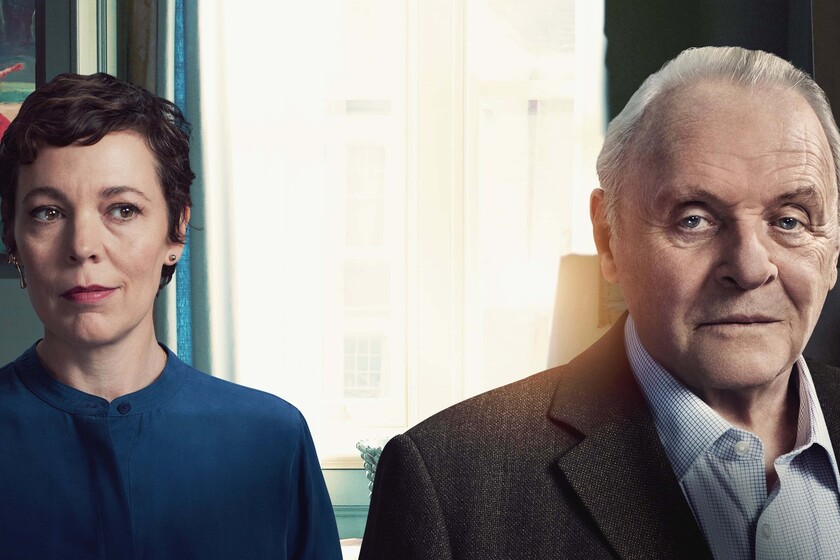Notice: Before starting my text on ‘The father’ I recommend that, if you intend to see it, stop reading at this very moment and immerse yourself in his proposal knowing the least about it in order to fully enjoy it.
Maybe one of the most insubstantial arguments that can be used when trying to revile a feature film – and, more specifically, an adaptation of the stage to the big screen – is the one that chooses to allude to an alleged “showmanship”. A condition that, in some way, diminishes the “cinematographic” potential of a production despite the strictly filmic nature of its narrative.
Inconsistencies aside, there is no doubt that if there is a clear advantage of the works represented live over a current film, that is their ability to focus the vast majority of the viewer’s focus on two essential components such as text and characters; key factors in building a solid foundation for emotion, often overshadowed in the cinema by unnecessary flourishes or formal slip-ups.

Almost as if it were almost an anomaly, ‘El padre’, brilliant in all its aspects, extracts the best of the world of theater and cinema, reaching an exceptional balance; squeezing the possibilities of the medium to mold a devastating portrait of senile dementia that hybridizes drama and a subtle terror that embraces almost Polanskian codes in one of the best movies of the year.
Impaired minds and mutant spaces
Despite having a remarkable career as a playwright and novelist, it is surprising that ‘The Father’ is the directorial debut of a Florian Zeller who uses the tools of film language like a seasoned veteran. An improper domain of a beginner thanks to which an exercise of point of view is generated as immersive as it is astonishing.
Via spotless camera work, staging and planningNot afraid to capture the spacious – and yet wildly oppressive – interiors that unfold history with a 2.39: 1 aspect ratio, Zeller and his team immerse us in the reality of a sick man in the that disorientation, temporal incongruities and changes reign in a space that mutates at the will of a deteriorated mind.

However, above any other technical or artistic element, ‘The father’ makes use of the huge work by editor Yorgos Lamprinos as the main weapon to take the experience to a new level. Thus, without any kind of effect, the cut becomes a modulator of rhythm and atmosphere that helps to transmute what could have been a much more conventional drama into an organic cocktail of genres in which horror makes its way unrestricted. no tricks.
Boasting a realism that boosts its emotional depth, the film does not hesitate to put her delicate form and sharp dialogue at the service of a dazzling cast. From their supporting roles – charming Imogen Poots – to the great duo of the show made up of Anthony Hopkins and Olvia Colman, they all carry the story in the air with naturalness and genius; driving it with great sobriety through 98 minutes of constant crescendo that explode in a devastating third act that makes it difficult to hold back the tears.

Rounded out by the compositions of a Ludovico Enaudi as soft and sensitive as usual, ‘El padre’ is una brave —in tonal terms— and accurate radiography of an evil that transforms the reality of the patient into a labyrinth, and that of the family member into a constant struggle. The simple fact of having transferred a subject of this depth to the cinema, projecting these sensations in such a reliable way and fleeing from melodramatic conventions, is only one more incentive to be able to justify each and every one of its recognitions in the 2020 awards season- 2021. Wonderful.
